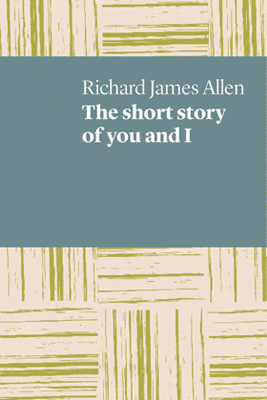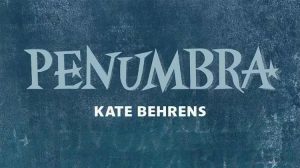The short story of you and I by Richard James Allen / UWA Publishing / 2019 / 112 pages / 9781760800215
“My poems are sleeping in these pages / waiting for you to rouse them,” Richard James Allen, Australian author of eleven books of poetry, dancer, and actor warns at the beginning of his latest collection. And it’s true. You have to pay close attention, or you will miss the images and clues he drops like Hansel and Gretel’s breadcrumbs. As if a doppelganger, the “you” of his poem, Schlafwagen und Wunderkammer (German for ‘sleeping car’ and `cabinet of curiosities’ and ‘wonder room’) inhabit many places simultaneously.
you are the night train to Vienna
and you have already arrived in Berlin
you are about to walk home in Sydney
and you must dash back out to see
the play that now is more popular
than Hamlet in London
 But don’t worry. The poet will not let you get lost. In “Misadventures in Paradise,” he writes “Your attention will be directed / by the traffic cop of Consciousness” and that is just how Allen functions in this collection. Time, that “horological miasma,” always circles back on itself, and Allen’s images reflect that. “In a long tale of a tall tale, a cat coiled up in itself asleep / the way those big ropes / that secure ships to their ports / are coiled into perfect circles. The poems also circle beyond his own grief to wrap around others, such as foreign seamen “the forever migrant workers / circling the globe.” Images lap back like a tide of memory or flashes of a past life. The old overcoat you don’t remember wearing will reappear in a later poem as “windless old overcoats / peering out from their unresolved darknesses.”
But don’t worry. The poet will not let you get lost. In “Misadventures in Paradise,” he writes “Your attention will be directed / by the traffic cop of Consciousness” and that is just how Allen functions in this collection. Time, that “horological miasma,” always circles back on itself, and Allen’s images reflect that. “In a long tale of a tall tale, a cat coiled up in itself asleep / the way those big ropes / that secure ships to their ports / are coiled into perfect circles. The poems also circle beyond his own grief to wrap around others, such as foreign seamen “the forever migrant workers / circling the globe.” Images lap back like a tide of memory or flashes of a past life. The old overcoat you don’t remember wearing will reappear in a later poem as “windless old overcoats / peering out from their unresolved darknesses.”
The emotional glue of this book is grief and love entwined. As in “The Song of Songs,” the lover is never named, the exact circumstance of the relationship never related, but Allen makes you feel the loss of the woman he loves both to him and the Universe as keenly as if you knew her yourself. In “Winter’s Gift,” a two-line ode, he writes, “To her Alaska-pale locks / I send my snow.” In another two-line poem, he describes how they met in a manner that could hark back to his memory of their first meeting or an otherworldly meeting that occurred after her death. “The taxi stopped and let out its ghosts / You were among them.” How she died might be implied in “The Captain of the Men of Death”: “One of the things that is so effective / About pneumonia as a killing machine / Is that you don’t know when it starts / And you don’t really know when it ends.” In “Quantum Esplanade,” in lines that shaped like the action, Allen shows the couple “rolling inexorably toward each other across the four-poster bed of space-time.”
I am smitten with the poems that bring in everyday life, how his beloved is there, yet not. In “A Small Eternity,” Allen writes, “I think of you every time / I hang the bedclothes out to air / floating between earth and heaven / like creamy clouds.” In “An Imperfect Storm,” Allen writes of going to a coffee shop where they might have gone together, their passion igniting each other and everyone around them:
your laser eyes
my internal combustion
we might have set off a chain reactionexploding the water pipes in the walls and floor
flooding the concept designer café
like a bubble bath overflowingthe chairs and the tables and before they know it
other dreamers and thinkers stubbies and suits
all bobbing about uncontrollablyin the soda water like waves
flavours in an exotically-named that whisk-you-away-
to-a-holiday-in-the-mind-mixed-drink
I could talk about Allen’s wordplay such as “the toppermost of the poppermost,” his astonishing vocabulary, the delight of looking up words I’d never heard such as “brumbies” (descendants of escaped or lost horses, dating back in some cases to those belonging to the early European settlers), and his deeply philosophical contemplation of time and human intelligence. But what moves me most, makes my dry eyes that I must lubricate with artificial tears well up naturally, is his conclusion that “love is the purpose of time.”




cara mayrick says
Rochelle, your review is enchanting!